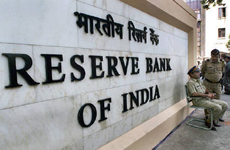By Radhakrishnan K.V.
The Reserve Bank of India (RBI) in its press release dated 29-11-2017 has warned general public to be cautious against some co-operative societies which use the word “Bank” in their names and those co-operative societies which accepts deposits from non-members and associate members. This has resulted in confusion among several depositors, general public, media and the entire co-operative sector in the country. The press release is as given below:-
“It has come to the notice of Reserve Bank of India (RBI) that some Co-operative Societies are using the word “Bank” in their names. This is a violation of Section 7 of the Banking Regulation Act, 1949 (As Applicable to Co-operative Societies) (the B.R.Act, 1949).
It has also come to the notice of RBI that some Co-operative societies are accepting deposits from non-members / nominal members / associate members which tantamount to conducting banking business in violation of the provisions of the B.R.Act, 1949.
Members of the public are hereby informed that such societies have neither been issued any licence under B.R.Act, 1949 nor are they authorized by the RBI for doing banking business. The insurance cover from Deposit Insurance and Credit Guarantee Corporation (DICGC) is also not available for deposits placed with these societies. Members of public are advised to exercise caution and carry out due diligence of such Co-operative societies before dealing with them.”
It is the duty of the all concerned to have a right perspective on the salient features of the relevant provisions of Banking Regulation Act 1949 related to the issue.
(1) There are 4 types of co-operative Societies which are doing Banking business in India.
(a) “Co-operative Banks” consisting of State Co-operative Banks, Central Co-operative Banks and Primary Co-operative Banks including Multi state co-operative Banks
(b) Primary Agricultural Credit Societies
(c) Primary Co-operative Agricultural & Rural Development Banks
(d) Primary Credit Societies
(2) “Co-operative Banks” alone come under the control of R.B.I. [Section 56].
(3) Primary Agricultural Credit Societies and Primary Co-operative Agricultural & Rural Development Banks do not come under the control of R.B.I. in as much as noting in the Banking Regulation Act 1949 shall apply to these Co-operative Societies [Section 3]. Accordingly, these Co-operative Societies shall carry on banking business using the word “Bank” without the license of the R.B.I.
(4) All other Co-operative Societies should abstain from doing banking business if they did not have applied for license of R.B.I. prior to the commencement of Banking Laws Amendment Act 2012. However, such co-operative societies may accept deposits from members, be it nominal members or members with voting power.
(5) R.B.I. should recognize that accepting deposits from members (nominal, associate or members with voting power) does not come under the definition of “Banking” and therefore no formal permission is required for such “Banking business” which is known “Co-operative Banking”. [Hon’ble Supreme Court has stayed the judgment of Hon’ble Rajasthan High Court in which it was held that accepting deposits from members is to be treated as banking with public].
(6) It is pertinent to note what the Apex court has observed. Supreme court in Greater Bombay Co-Op. Bank Ltd vs M/S United Yarn Tex. Pvt. Ltd. & Others on 4 April, 2007 stated as follows; – “The distinction between peoples’ co-operative banks serving their members and corporate banks doing commercial transactions is fundamental to the constitutional dispensation and understanding co-operative banking generally and in the context of cooperative banking not coming under the ambit of the BR Act. Thus, even if the co-operatives are involved in the activity of banking which involves lending and borrowing, this is purely incidental to their main co-operative activity which is a function in public domain.“
Therefore, let the Primary Agricultural Credit Societies and Primary Co-operative Agricultural & Rural Development Banks undertake banking business using the word “Bank” with the names without having license of R.B.I. Let the other Co-operative Societies accept deposits only from its members, without the interference of the R.B.I. in case the Co-operative law under which those are registered permits, in view of the judgment dated 08-08-2017 of Hon’ble Supreme Court in the case Citizen Co-operative Society Ltd., vs. Assistant Commissioner of Income Tax, Hyderabad.
(Author of the piece Radhakrishnan K.V. is a retired Joint Registrar of co-operative Societies and lives in Thrissur, Kerala. He can be accessed at Kvr2009@gmail.com)
